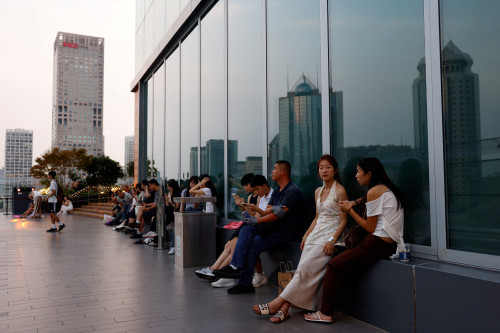By Brendan Pierson
(Reuters) – The Indiana Supreme Court on Friday upheld a law banning nearly all abortions in the state, lifting a lower court order that had blocked the law in response to a lawsuit by Planned Parenthood and other abortion providers.
The court, in a 4-1 decision, found that the Indiana constitution does not include a broad right to abortion, allowing Indiana to join 14 other Republican-led states in enforcing abortion bans.
“We celebrate this day – one long in coming, but morally justified,” the office of Attorney General Todd Rokita said in a statement. “Thank you to all the warriors who have fought for this day that upholds life.”
Lawyers for Planned Parenthood and other abortion rights groups involved in the case said in a joint statement that they were “devastated” by the ruling.
“Despite this setback, we’ll keep fighting to restore reproductive rights in Indiana and to help Hoosiers get access to the services they need,” they said.
Indiana’s General Assembly last August passed the first new law state law banning abortion after the U.S. Supreme Court in June overturned Roe v. Wade, the landmark 1973 ruling that had established a right to abortion nationwide.
The law prohibits all abortion with exceptions for rape, incest, lethal fetal abnormalities and to save the mother’s life or prevent serious health risk.
Planned Parenthood argued in its lawsuit that the law violated the right liberty guaranteed by the state constitution. A judge last September found that argument likely to succeed and blocked the law from being enforced while the lawsuit went forward.
But Justice Derek Molter, writing for the majority on Friday, said the framers of the state constitution “left the General Assembly with legislative discretion to regulate or limit abortion.” He said that conclusion was supported by the state’s history of criminalizing abortion since 1835.
Molter wrote that the constitution did protect the right to abortion to save the mother’s life or prevent serious health risk, but said that did not invalidate the law because it included exceptions for such cases.
Justice Christopher Goff, in a dissent, said he would have left the order blocking the law in place while the lawsuit goes forward, and suggested that the issue should ultimately be decided by a referendum.
“In my view, even those who abhor abortion in all circumstances should be wary of unfettered government power over the most personal, private aspects of a person’s life,” he wrote.
(Reporting By Brendan Pierson in New York; editing by Grant McCool)





